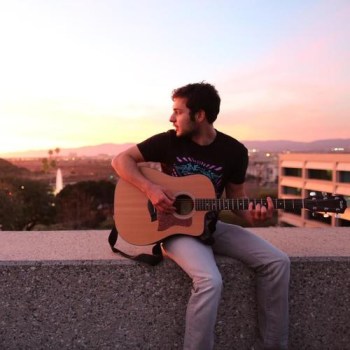 Based out of California, The Stars Above is a project geared towards exploration, and it is what Michael Jakucs uses to explore his thoughts and interactions with the world. This artistic vision creates this enjoyably interesting sonic texture. With two studio albums recorded, The Stars Above looks to make an impact this year. I had the chance to chat with Michael about the project’s origins, his views on art, and the writing process for The Stars Above.
Based out of California, The Stars Above is a project geared towards exploration, and it is what Michael Jakucs uses to explore his thoughts and interactions with the world. This artistic vision creates this enjoyably interesting sonic texture. With two studio albums recorded, The Stars Above looks to make an impact this year. I had the chance to chat with Michael about the project’s origins, his views on art, and the writing process for The Stars Above.
Ryan Kearns: Since you are such a young musician still in college, what gave you the initial push to form this project? What gave you the inspiration to name it The Stars Above?
Michael Jakucs: It was for that very reason that I began The Stars Above. College is a very interesting time and I wanted to have a way to chronicle the memories, feelings and emotions that run through the four years. The newest release Shoreline features songs that I wrote throughout my four years of college. Each song represents a different time and memory. I guess it’s fitting that I released it this year near the end of my senior year. Also, I have always been interested in astronomy and the potential that space offers. I often gaze at the stars to lose myself and remember that there is so much more to the universe than any problem I am facing. I felt that a dense soundscape was fitting to capture my thoughts and the essence of my impression of the world around me.
Ryan: There has been a legislation recently introduced in Congress called the Internet Radio Fairness Act. This legislation will allow Internet radio services such as Spotify and Pandora to pay reduced royalties to artists and record labels. Now, the main way most people enjoy music is by the use of Spotify or Pandora and bands get a fairly low royalty rate as it is. How do you feel about this situation? In addition, how do you feel about these services revamping the music industry?
Jakucs: From an artist’s standpoint, I can understand the disappointment and anger, seeing as it is their work and a company rather than the creators are benefiting however, it is not fair to have one’s music used by a company for profit while the author is not getting paid. I rarely use services like Pandora or Spotify because I prefer to discover music on a more personal level, such as delving into the influences of band’s I am currently listening too. I discovered bands like Godflesh, Isis, and Cave In, which have had a big influence on my music, by this very method. In the Internet age,some people have a tendency to want everything handed to them, and they can grow complacent and detached from the work and message intended by the musicians.
Ryan: What has the experience been like bringing this project to life?
Jakucs: It has been a wonderful journey. As I said before, I began this project to chronicle memories, and decided to share it for anyone who may be interested in listening or going through the same things. It has been very humbling and rewarding to see how far it has come and it leaves me hopeful and excited for what the future will bring. There will always be good times and bad times, but without the bad, there would never be value to the good.
Ryan: How has the writing process changed between the project’s debut LP Clouds and it’s most recent release Shoreline?
Jakucs: The ideas for the songs of Clouds and Shoreline share a very similar creative process. I would come up with a riff or idea on either the guitar or piano and then build it within pro tools. They also shared the same mindset and goal of mixing alternative, post rock and electronic aesthetics to create something more unique. I am currently working on new songs, which have been taking on a completely different mold. They focus more on organic sounds, odd time signatures, and a more dynamic rise and fall within the song. Rather than building an idea with multiple instruments, I am initially writing these entirely on a guitar or piano and then adding on the accompaniment that seems most relevant around it.
Ryan: Normally, the music that someone composes for a song matches the mood of the lyrics effectively portraying the song’s message. In your song “As You Crumbled”, the lyrical content is rather somber, while your musical content is joyous. Were you trying to express the concept of finding joy in sorrow or were you trying to push artistic boundaries?
Jakucs: The chorus was the first idea for that song that popped into my head, and the words seemed to write themselves immediately. It wasn’t a conscious push for a joy in sorrow type of concept; rather it was letting the song speak for itself. With the concept of deconstruction in mind, the binary of joy and sorrow cannot be understood without each other. In that way, the melancholic lyrics are made more apparent by the joyous instruments and vice versa.
Ryan: As the use of technology in music has advanced in the past few year, do you suppose this more focused use of technology in music hinders the creativity of musicians or expands it?
Jakucs: I think technology, like anything, can be used for both progression and regression. There are bands that push technology and really show the possibilities music can now achieve, and then there are the cookie cutter types of music that follow a set mold and use a mouse and key to take away any sort of human quality from the music. Technology has allowed me to achieve the arrangements I want. It also allows for easy experimentation, sonic exploration, and a greater social reach via the Internet. One of my dreams is to use analog equipment at some point in the future, but the digital age has definitely worked for me so far.
Ryan: On your bandcamp page, the track “Farewell (For Now)” is described as being “for that special girl while I’m in Ireland”. Care to elaborate on the story behind that?
Jakucs: I studied abroad there for a summer, and was in a serious relationship at the time. I find music is a much better way to communicate than simple language, so I wrote the song for both of us to have something to listen to and remember the good times while I was away.
Ryan: Since you run the entire process of writing the band’s material, do you feel like that makes it harder because of the work load being greater or easier because you are allowed to have your creativity run wild?
Jakucs: It is definitely a little bit of both, but I prefer it this way. I recently had a conversation with a good friend of mine who is adamantly opposed to “one-man bands,” but I think it’s the best way to get a personal message channeled through the music. I was in multiple bands in high school and my biggest gripe was having to compromise on the music. As an artist, it’s nice to say exactly what you want to in every part of a song without any compromise. At times it can be a little tricky when trying to write interesting parts for every instrument, but the challenge is also very rewarding.
Ryan: One of my favorite musicians, Brandon Boyd, believes that art and music are a great means of driving social change. Do you follow the same mindset or do you differ?
Jakucs: Personally, I don’t want to get involved in trying to bring about social or political change; but rather encourage people to think for themselves and formulate their own set of beliefs. I tend to make instrumental music because I want the listener to create his or her own meaning. When I do put lyrics in a song, they are always deeply personal and really intended for my own contemplation. It’s my own way of figuring out my own beliefs, and hopefully it does the same for those who listen. There are a lot of great musicians that put social messages into their lyrics, but I’d rather encourage the listener to think for, and about themselves.
Ryan: Where are you looking to take this project from here?
Jakucs: I’m currently in the process of putting a band together to play some shows. I am also in the thick of recording next album and writing more for my next project. There is definitely a shift in sound and tone in my latest work,but it remains true to the purpose of the project, which is the importance of memory and reflection.


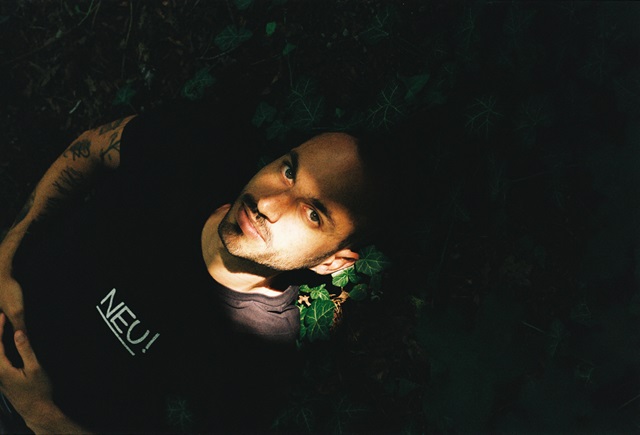
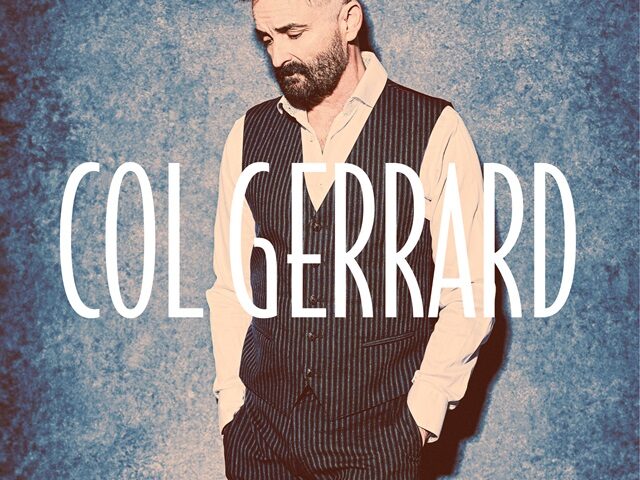
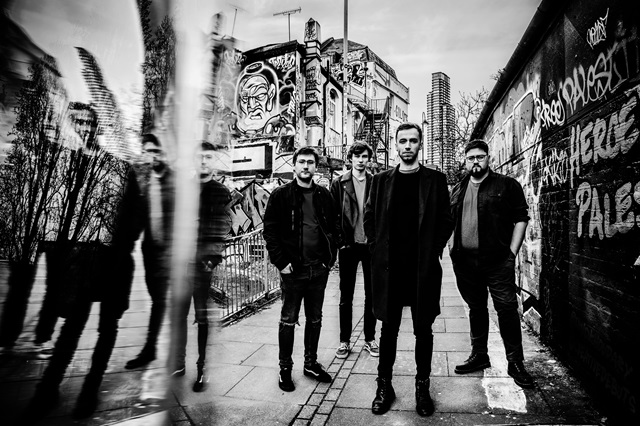
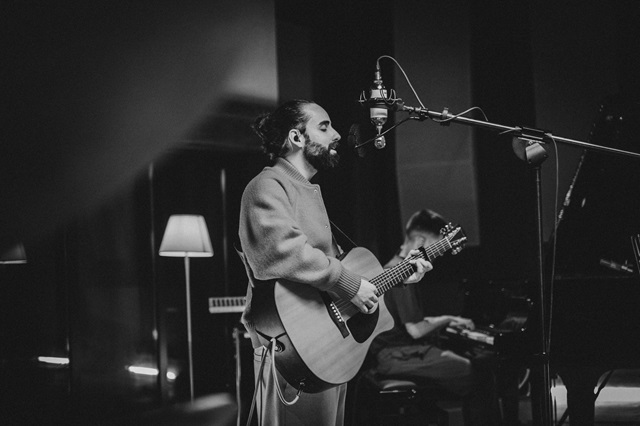
Nice interview , I am hoping stars above would make another album